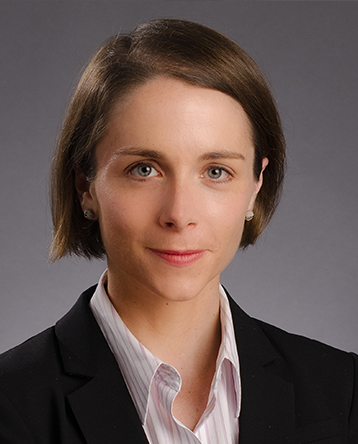Valerie Karplus
Associate Director, Wilton E. Scott Institute for Energy Innovation
Professor, Engineering and Public Policy
Associate Director, Wilton E. Scott Institute for Energy Innovation
Professor, Engineering and Public Policy

Valerie Karplus is a professor in the Department of Engineering and Public Policy and associate director at the Wilton E. Scott Institute for Energy Innovation.
Karplus studies resource and environmental management in organizations operating in diverse national and industry contexts, with a focus on the role of institutions and management practices in explaining performance. Areas of expertise include innovation in global corporate and industrial supply chains, regional approaches to workforce and economic revitalization, and the integrated design and evaluation of public policies. Karplus has taught courses on public policy analysis, global business strategy and organization, entrepreneurship, and the political economy of energy transitions. At CMU, she runs the Laboratory for Energy and Organizations. Karplus is also a faculty affiliate of the MIT Energy Initiative, the MIT Center for Energy and Environmental Policy Research, and the MIT Center for Sustainability Science and Strategy.
She has previously worked in the development policy section of the German Federal Foreign Office in Berlin, Germany, as a Robert Bosch Foundation Fellow, and in the biotechnology industry in Beijing, China, as a Luce Scholar. From 2011 to 2016, she co-founded and directed the MIT-Tsinghua China Energy and Climate Project a five-year research effort focused on analyzing the design of energy and climate change policy in China, and its domestic and global impacts. Karplus previously served on the faculty at the MIT Sloan School of Management.
Karplus holds a BS in biochemistry and political science from Yale University and a Ph.D. in engineering systems from MIT.
Ph.D., Engineering Systems, MIT
B.S., Biochemistry and Political Science, Yale University
Materials Science and Engineering
A recent study analyzed the variations in operations across the global blast furnace fleet and its impact on carbon dioxide emissions, finding that emissions could have been reduced both globally and nationally if each furnace had operated at either its own historical minimum emissions intensity or the observed national minimum.
Wilton E. Scott Institute for Energy Innovation
The discussion paper released by the RETI Consortium lays out recommendations for building regional innovation capabilities that cross industry boundaries and state borders in the West Virginia-Western Pennsylvania region.
Wilton E. Scott Institute for Energy Innovation
For the third annual workshop, co-chairs Valerie Karplus and Chris Pistorius led sessions that focused on companies’ progress updates, breakthroughs, technology costs, and public policy for decarbonization.
Wilton E. Scott Institute for Energy Innovation
WVU with CMU, Pitt named finalist for $160M NSF Engine Award to supercharge regional energy technology, infrastructure.
Sustainable Pittsburgh
EPP’s Valerie Karplus was a panelist at Sustainable Pittsburgh’s Clean Energy Workforce Roundtable, which explored career maps and technology in workforce development, building a workforce vitality index, and marketing career pathways in the clean energy space.
Wilton E. Scott Institute for Energy Innovation
decarbSTEEL is a CISR-Scott Institute joint initiative to support decarbonization in the iron and steelmaking industry.
Engineering and Public Policy
Researchers in Carnegie Mellon University’s Department of Engineering and Public Policy have developed a generalizable approach for analyzing the impact of decarbonization scenarios on a region’s workforce.
CMU Engineering
Energy audits can be a useful tool for reducing industrial emissions, but new research co-led by Valerie Karplus found that clear climate-specific goals are a vital part of the equation.
Canary Media
EPP’s Valerie Karplus was quoted in Canary Media about how Europe’s efforts to strengthen and decarbonize its energy supply could motivate other countries to follow their example.
CMU Engineering
In an annual gathering at CMU, global decarbonization leaders worked toward tackling the challenge of decarbonizing steel production while meeting increasing world-wide demand.
Wilton E. Scott Institute for Energy Innovation
Scott Institute Director Costa Samaras, Associate Director Valerie Karplus, and Executive Director Daniel Tkacik reflect on the past year.
Engineering and Public Policy
Carnegie Mellon was awarded a $500,000 planning grant from the Appalachian Regional Initiative for Stronger Economies (ARISE) to analyze the skills of the regional workforce and develop tools to match workers with jobs.